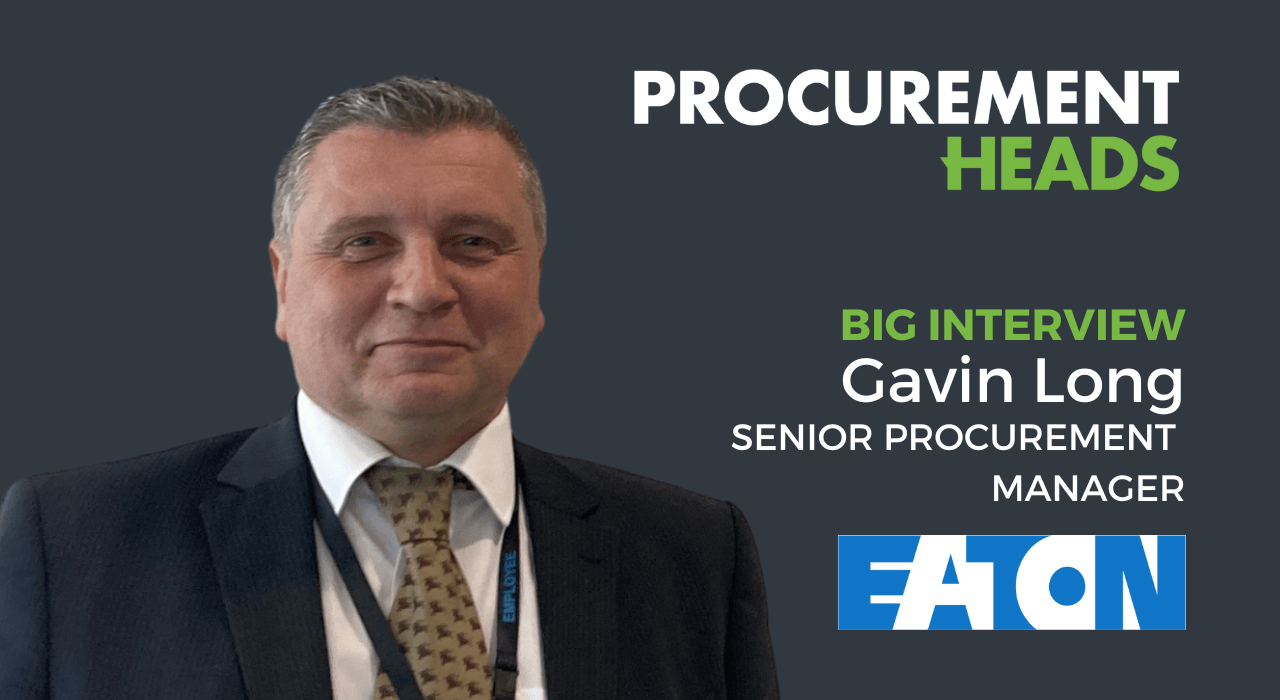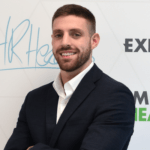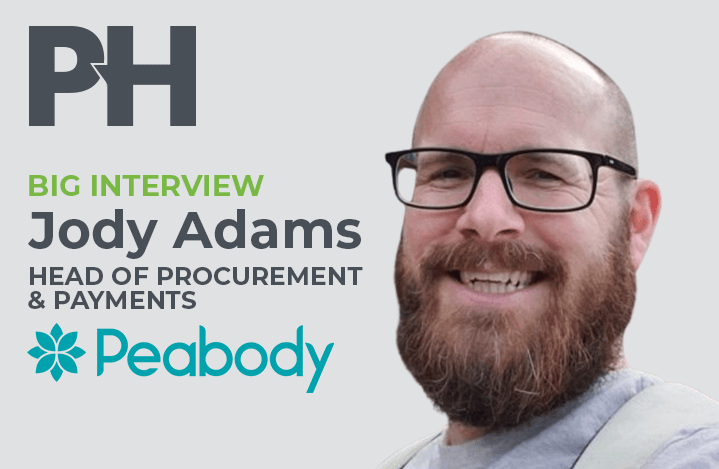Procurement Heads‘ Senior Recruitment Consultant, Rahim Ali Ahmad spoke to Gavin to hear more about his procurement career.
How did you get into procurement?
Quite some years ago, fresh out of school, I took the first job that was offered to me having moved down to the south coast and it was in the insurance industry.
I was busy learning how to do household claims and gradually started to look around and wonder if there was more to life than insurance!
I gradually learned more about the supply chain that supported the insurance industry and that companies were being used to dry out properties when there had been a flood, replace property when there had been a theft and that the supply chain world interested me more and more.
One thing led to another and I joined a company to help set up their supply chain from scratch in terms of claims, claims management and how to service customers.
I almost fell into it by accident in terms of that route.
I really then got the bug and thought I was going to get my CIPS and really go for it, I got my CIPS a while later and again had that conversation with myself wondering if there was more to life than insurance as I was still in the industry, I was focused on indirect spend and every company must need indirect spend of some kind, I looked and focused my experience on that and then tried to expand my career, so best laid plans.
What did I do next? I took a job with an insurance company!
So, then I was with LV, 10 years of my life in various roles, and actually, in fairness the best move I made – even though I stayed in the industry after promising myself I would leave!
We won a CIPS award for Best Procurement Operation Start-Up.
I really started to cut my teeth on the whole end-to-end category management and the industry as a whole, the progression was natural for me.
Things then really took off and I was hooked for life from that point onwards.
What are you most passionate about when it comes to procurement?
It is probably going to sound a bit clichéd, but what makes me get up in the morning is to try and make a positive difference to someone, that is the belief I have that procurement individuals are there to be agents of support and change and make a positive difference in one way or another and that drives me, I am passionate about making that difference.
Also making sure I build a function that has integrity and respect, not only internally but also with the suppliers and that drives into everything and gives you the chance to make that positive difference and that drives what I do.
What would you say are the current challenges you and your team are currently facing?
Although it is a bit of a buzz word resiliency is definitely a top topic at the moment. We have the Ukraine conflict, Brexit, Covid and all of those effects are still very much in the business and we are finding ways to challenge ourselves in how to buy differently and understand this world better so we can prepare not only for now but for the future.
And that is everything from can we look at how we stock inventory differently, can we look at how we buy differently to mitigate risk, can we look at the labour rates and what we are doing to change how we even get services into the business.
It is a vibrant time but it is also challenging, prices are going up and we are still expected to make savings, it is good we have never had such a focus as a team, but it can be tough at times.
How have your team worked towards a resilient supply chain?
Some of the key things we have looked at in terms of resilience, if you go back a few years we may have just called it supplier risk management but the building blocks have always been there, it is bringing that to the forefront more and more.
For me, resilience is the output of the actions we have decided to put on and that can be in the front end in the sourcing element it could be during relationship management, there are many layers that we can work through with each key supplier to build that resiliency for ourselves . That is why I badge it as the output as it is not one size fits all, it will always be what is right for that aim, that goal, that supplier or that service.
We have certainly got a programme in place that we are gradually working our way through those key suppliers and challenging ourselves to do that, we certainly have a journey in front of us to get comfortable, we recognise we have got a long way to go but again it is all positive stuff.
And during that time, you have got to keep the lights on and keep providing as well.
What would you say are the main challenges you and your team have had to navigate around the pandemic?
It is ultimately Mission Systems as we are called now, obviously, we have aerospace clients and military clients.
The pandemic doesn’t stop the military so we are expecting to deliver the whole time irrespective of the pressures around us.
Certainly, in the first year of the pandemic, everybody was reacting and the sheer amount of additional effort across the whole business was incredible to be part of actually and somehow everybody found this additional resource inside themselves, the passion to keep going and didn’t let it affect the business was quite something to be proud of actually.
And it led to one of our most successful years ever, by the end of the year we had double-digit growth.
While it affected us immensely and obviously people had to adapt to working from home, as managers we had to learn how to manage more remotely, and still be as effective as we were before.
The way in which everybody adapted was something to be proud of actually.
What other impacts did covid have on the organisation?
We had an impact on the organisation in terms of the business impact but also a lot of personal impacts as well so we saw that cycle was initially it was very reactive, we had to settle into some kind of group to understand what this world now looks like, the office was very much office-based. Flexible working was talked about and done rarely but wasn’t really a set part of the DNA. Now we have been able to reassess that whole work-life balance, the office has had a refit to allow more hot desk availability and that has actually meant that for the frequency in numbers of people on site, the average has reduced.
We have then as a result been able to reduce the office space and increase the shop floor and grow the manufacturing business even further. So again we have managed to turn a negative impact first in terms of the pandemic, which has had some positive output in some places. We used to opportunity to grow as a business even further.
One member of my team was quite resistant to working from home initially and now he absolutely loves it and embraces it. The personal dynamic of how we work has completely flipped on its head.
From a business and a personal point of view, we have all had to work with a new flow and it has opened up more doors for people.
How has the hybrid working model affected the teams and the collaboration throughout the organisation?
Obviously, not everybody has the ability because of their role that they can do flexible work because of the engineering side of things.
There are definitely times when it would have been better to have been in a room with everybody, yes you can use Zoom and things but there are times when going in and meeting people because of the other benefits that you can’t see.
I was in the office yesterday as I had meetings, but from bumping into people on my way to meetings the value, I got from those ad hoc meetings you can’t replicate through the web as easily. So there are definitely times when we need to be mindful of that visibility to our teams, our customers and our internal stakeholders and we will find that balance as we develop our working life accordingly.
If we keep that visibility to those three groups and achieve our goals then from my point of view that is a really good harmonised way of working now.
What would you say the future looks like for you and Cobham?
It has been an interesting few years for us, Cobham PLC as it was in 2019, was sold to Advent Group, Advent group was an investment house then divested all the different Cobham businesses into their own entities and has since sold them on in effect after keeping some for a year or two then sold some of them on.
I moved from Cobham PLC to Cobham Mission Systems which is the main flight refuelling entity. That then in 2021 was sold to Eaton Group so we had gone from an owner with a relatively short-term vision of what they wanted to do with the business as we knew they would sell it on, to Eaton group which is a strategic investment, long term investment in the business.
We are part now of a huge global operation that reaches everything from automotive to aerospace in the engineering space, the future looks pretty bright really having now got this support from a company that wants to invest in what we are doing. Yes, they are really interested in how we have gotten to where we have today in terms of that success.
We are busy integrating into that Eaton world at the moment, even yesterday we had the Vice President of Aerospace Supply Chain Senior in to see us and he literally said ‘let’s have an open conversation about how we do things’ and it feels measured, it feels logical, and it is not rushed as an integration programme and it will enable us to do a best of breed approach across the various procurement functions across the Eaton group and build opportunities together, so I am really looking forward to that work at the moment, we started it in earnest and it is going really well.
From a longer-term investment point of view, it opens up the ability for us to have some new procurement tools, and some data analytic software that we previously wouldn’t have sight of, all of those immediate benefits will be coming to us very quickly, to help with day-to-day life.
That part of our world, while it is a change, we are quite comfortable with change as procurement individuals often are agents of change so we are quite comfortable with the conversations we are having and it is nice that it’s such a collaborative approach so for me I am really looking forward to the next 18 months of work.






